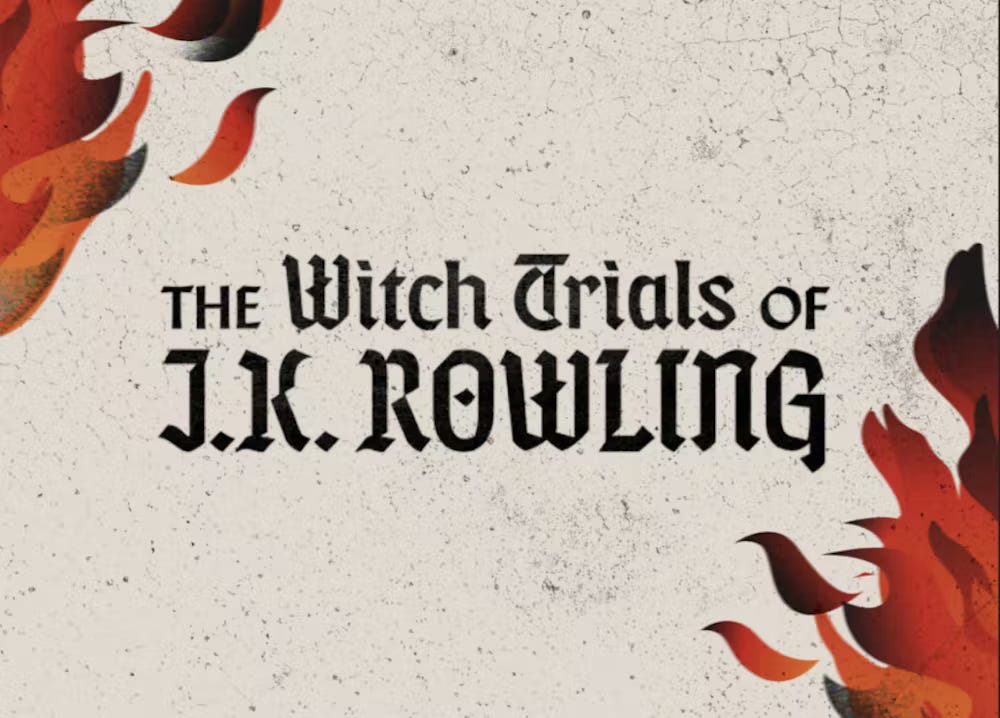New old (never shared, got lost in my drafts) post at Genspect on the Natalie and Noah episode of The Witch Trials of JK Rowling…
I found the ‘Natalie’ segment hard to listen to because of the breathless falsetto, whiny theatre-kid energy, rampant dishonesty, and shameless manipulation.
The ‘Noah’ segment is hard to listen to because Noah is exactly who Rowling is worried about: a bright, sensitive kid who was going through a hard time and needed real help and understanding but found gender instead.
But what I want to write about is the way Noah leans so heavily on the promise that transition is medicine to say (more or less): I made the right choice. Doctors evaluated me and there was a medical decision that was made that I needed to transition. Noah returns to this again and again and again, running over the promises medical providers made as though those promises were beads on a rosary.
This faith in medicine cuts Noah off from the insights Megan Phelps-Roper offers: that distress and disgust at puberty is normal. That Noah was perhaps having a thoroughly typical female experience of adolescence.
At one point, Noah says: "Part of my journey with self mutilation was that I hated my body and wanted to punish my body..." Under trans ideology, Noah is encouraged to seek out the companionship of other people who identify as trans, regardless of their age or sex or life experience. But while they may use the same language of self-discovery, it’s doubtful that such a diverse group of people is sharing an experience of ‘being trans’ at all. Noah’s real peers are other teenage girls—anorexics and cutters on their own “self-mutilation journeys”—enacting various escape attempts.
To ward off doubt—and trans identity tends to be riddled with doubt—patients, parents, and doctors cling to ‘certainties.’ One of the most compelling balms is the idea—true or false—that you had no choice but to act as you did.
You can hear this in a conversation with Rose, a mother who came to regret socially transitioning her two young sons. Even when what she was doing didn’t feel right, she felt there was no alternative. She believed she had no choice. So she must be doing the right thing, even if it felt wrong.
You can hear it with gender clinicians, who insist that psychotherapy can’t resolve or relieve gender-related distress. Their hands are tied. They must affirm. And if they feel queasy about a case here and there, they must overcome those feelings and get with the program.
You can hear it when young people justify their decisions to undergo irreversible medical interventions—like the young woman I mentioned in my Genspect presentation, who expressed doubts about her upcoming double mastectomy and said she was “doing my best to see this as a medical treatment for dysphoria but there’s always a lingering fear in the back of my head.” The belief that those procedures are medically necessary helps keep doubts at bay.
And you can hear it in Noah’s story, when Noah says things like: Well, in my case, my distress wouldn’t have gotten better because I was evaluated by professionals, this was a medical process…




When I heard Noah talk about going into therapy with anxiety, finding a therapist who happened to specialize in “anxiety and gender dysphoria,” and then through work with this therapist, retroactively attributing all anxiety and other problems to unrealized, sublimated gender dysphoria, which then became all consuming, my first gut reaction was “that therapist belongs in jail.”
Thanks, Eliza for mentioning our conversation with Rose. GWL recently changed distributors, so if you want to listen to the Rose conversation, here is the updated link: https://www.widerlenspod.com/p/109-what-if-we-are-all-wrong-a-mothers-e3d